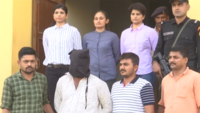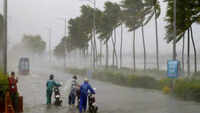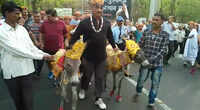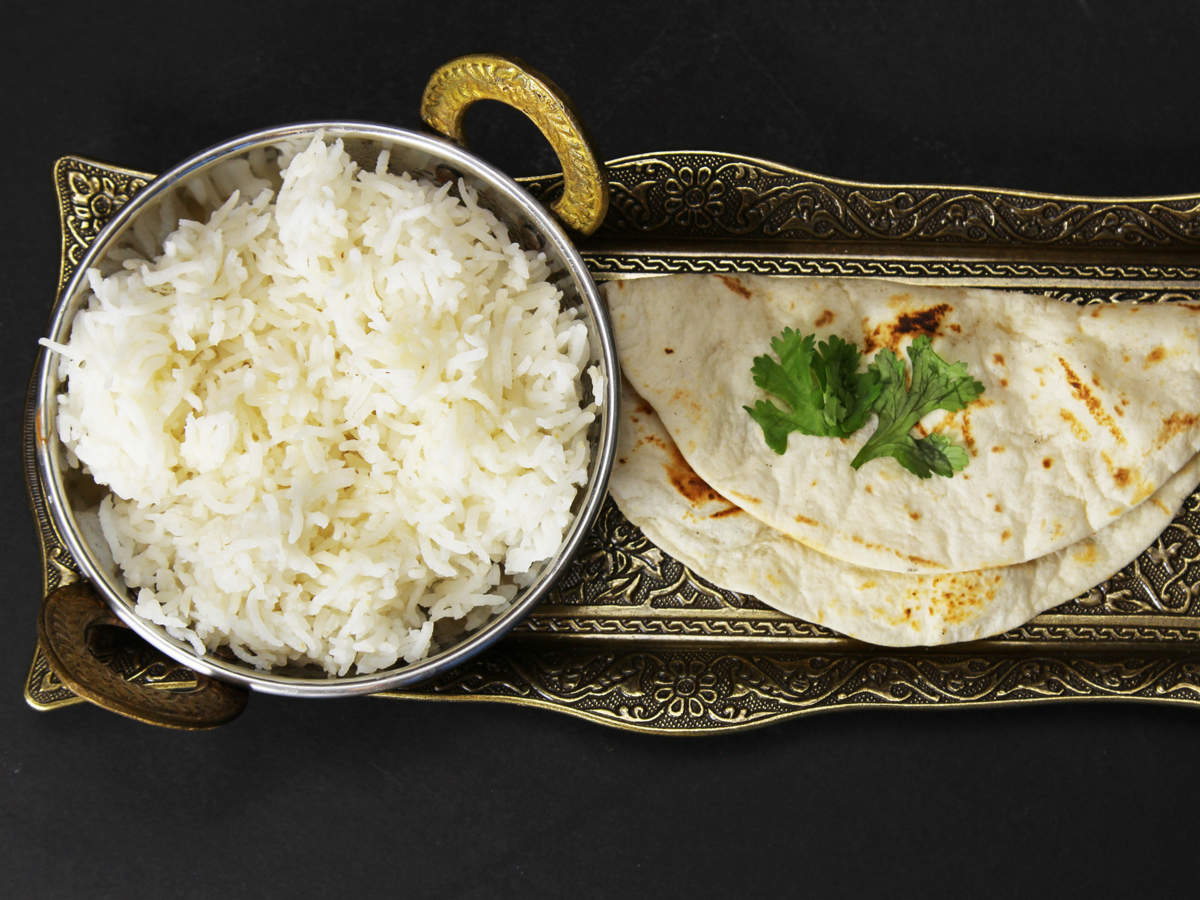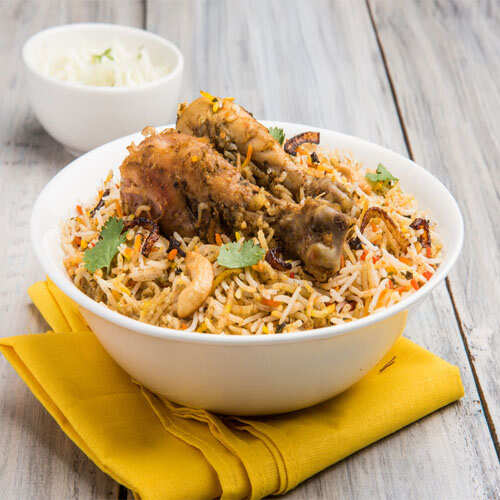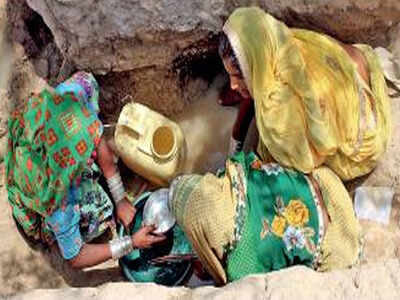
PATAN: In times when parts of Gujarat reels under a severe water crisis, spare a thought when you stand under the showers, waiting for the incessant flow to clear your head. There are families in Patan and Banaskantha in north Gujarat who spend an average three hours to fetch a bucket of water. Scarce availability of this precious resource has forced people to alter death rituals and even push out weddings from their homes to cities and towns to ensure guests don't go back thirsty.
On the auspicious day of Akshay Tritiya on Tuesday when thousands of couples will tie the knot across Gujarat, Tavsi Parmar, 56, a worried father hailing from Bhadrala village near Sami in Patan district is forced to shift the wedding to Ahmedabad at the last minute.
“Over 200 guests were expected to attend the weddings of my two daughters. With my village getting water once a week, if luck does not desert us, there was no way I could host the baraat here. I have shifted the wedding to Ahmedabad which will add to the cost but the wedding will not be ruined due to lack of water," said Parmar.
Water scarcity has cast a shadow on funerals too. Fellow villager Mukesh Panchal cannot get over the fact that he could not offer a bucket of water each to his family who attended his grandmother Jabiben's funeral who died a fortnight ago. “As per custom, all family members have to take bath after consigning the mortal remains to flames. But with no access to water, we could only sprinkle a few drops of water on each of the 150-odd family part of the last rites. It was heart-breaking,” he said.
The real picture of the dry state
Life in border districts of Patan and Banaskantha considered Gujarat’s ‘dark zones’ due to depleted water resources has been thrown out of gear with villagers forced to depend on tankers or go desperately looking for water pits that yield only brackish ground water.
In nearby Singotariya village, the family of Bharat Thakor is preparing for his wedding on May 7. Here, water is not available in taps or handpumps forcing women to fill pots from from muddy pits on the village outskirts.
“Tradition mandates we offer offer water and food to our guests but the situation is so bad here, guests are forced to accompany us to tread kilometers to fetch drinking water,” said Thakor. His family fills about 7 to 8 pots from a water resource about 3 km away as there is no dependable tanker network as well.
Ironical it may seem but people in both these districts seem to have resigned to the fate of daily struggle for water.
“We are spending about four to five hours daily just to get water home from wherever it’s possible. It’s not just about this year – every summer is like this. Our village has difficulty getting our kids married,” said Hakiben Thakor at Kailaspura near Varahi who had come to fetch water with sevenodd pots with her three family members.
On the auspicious day of Akshay Tritiya on Tuesday when thousands of couples will tie the knot across Gujarat, Tavsi Parmar, 56, a worried father hailing from Bhadrala village near Sami in Patan district is forced to shift the wedding to Ahmedabad at the last minute.
“Over 200 guests were expected to attend the weddings of my two daughters. With my village getting water once a week, if luck does not desert us, there was no way I could host the baraat here. I have shifted the wedding to Ahmedabad which will add to the cost but the wedding will not be ruined due to lack of water," said Parmar.
Water scarcity has cast a shadow on funerals too. Fellow villager Mukesh Panchal cannot get over the fact that he could not offer a bucket of water each to his family who attended his grandmother Jabiben's funeral who died a fortnight ago. “As per custom, all family members have to take bath after consigning the mortal remains to flames. But with no access to water, we could only sprinkle a few drops of water on each of the 150-odd family part of the last rites. It was heart-breaking,” he said.
The real picture of the dry state
Life in border districts of Patan and Banaskantha considered Gujarat’s ‘dark zones’ due to depleted water resources has been thrown out of gear with villagers forced to depend on tankers or go desperately looking for water pits that yield only brackish ground water.
In nearby Singotariya village, the family of Bharat Thakor is preparing for his wedding on May 7. Here, water is not available in taps or handpumps forcing women to fill pots from from muddy pits on the village outskirts.
“Tradition mandates we offer offer water and food to our guests but the situation is so bad here, guests are forced to accompany us to tread kilometers to fetch drinking water,” said Thakor. His family fills about 7 to 8 pots from a water resource about 3 km away as there is no dependable tanker network as well.
Ironical it may seem but people in both these districts seem to have resigned to the fate of daily struggle for water.
“We are spending about four to five hours daily just to get water home from wherever it’s possible. It’s not just about this year – every summer is like this. Our village has difficulty getting our kids married,” said Hakiben Thakor at Kailaspura near Varahi who had come to fetch water with sevenodd pots with her three family members.
#ElectionsWithTimes
more from times of india cities
Elections 2019

Trending Topics
LATEST VIDEOS
More from TOI
Navbharat Times
Featured Today in Travel
Quick Links
Lok Sabha Election Schedule 2019Lok Sabha Election NewsDelhi Capitals teamMI team 2019Rajasthan Royals 2019RCB team 2019Maharashtra Lok Sabha ConstituenciesBJP Candidate ListBJP List 2019 TamilnaduShiv Sena List 2019AP BJP List 2019Mamata BanerjeeBJP List 2019 MaharashtraPriyanka GandhiBJP List 2019 KarnatakaAMMK Candidate List 2019BJP List 2019 WBLok Sabha Elections in Tamil NaduBSP List 2019 UPNews in TamilLok Sabha Poll 2019Satta Matka 2018PM ModiMahagathbandhanNagpur BJP Candidate ListChandrababu NaiduTamil Nadu ElectionsUrmila MatondkarNews in TeluguMadras High CourtTejashwi YadavArvind KejriwalTejasvi SuryaPawan KalyanArvind KejriwalYogi AdityanathJaya PradaSatta King 2019Srinagar encounter
Get the app

